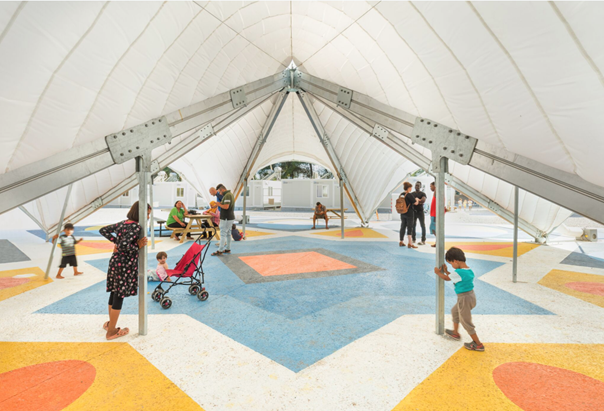This course reviews various contemporary social and ethical approaches in architectural thought and practice. In an age of neoliberal economics, privatization, and a declining welfare state, most urban projects currently planned and built are initiated by market forces or otherwise serve society’s wealthiest. Current spatial planning therefore marginalizes and pushes various groups away from the city locale. Architecture critics therefore comment on what they view as the rise of an architecture of spectacle and an overemphasis on form at the expense of social questions.
In response, recent years have seen the development of modes of action that view and practice architecture from an ethical standpoint. Architects can act directly to promote social values and relieve spatial injustice: Architects, planners, and designers initiate or collaborate with communities, civil society organization, academic clinics, and municipal authorities to plan projects for marginalized groups and planners and architects initiate alternative planning to meet the needs of marginalized areas; Architects convince entrepreneurs to expand their program to include public and communal uses, thus protecting the interests of a variety of users, not just those of their clients; Planners and architects develop alternative plans and models to city life that take in to consideration parameters such as gender and age group; Architects and planners fight gentrification and the dislocation of poor residents from their neighborhoods. Older structures, much past their prime, are reused to accommodate the social needs of various users.
The course introduces the relevant theory, concepts, common problems, and relevant solutions through contemporary ethical and social approaches. We will critically examine various examples and discuss their ethical, social, and architectural value, as well as apply these various modes of thought in research of case studies in a seminar paper.
